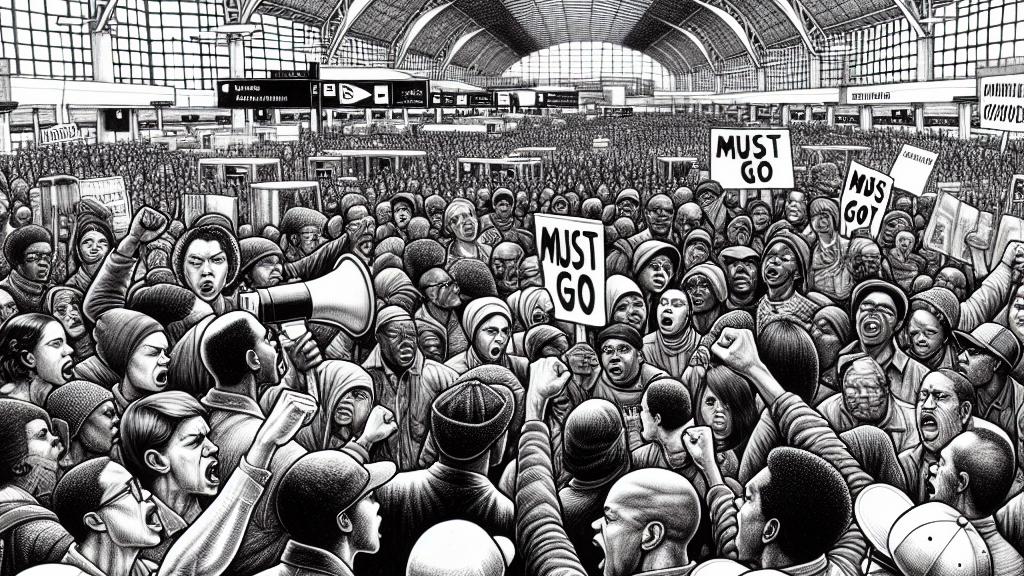Grounded in Chaos: Passengers Stuck at JKIA Amid Adani Airport Uproar!
Overview
- A shocking strike at JKIA has left hundreds of passengers stranded, their plans disrupted and hopes dashed.
- Operations ground to a halt, showcasing the palpable frustration that filled the airport as travelers awaited news.
- Intense opposition from local unions highlights critical concerns regarding the Adani Group's controversial takeover.

Strike at JKIA
In a dramatic escalation of tensions, Nairobi's Jomo Kenyatta International Airport (JKIA) became the epicenter of chaos as airport workers launched a strike against a contested deal with India's Adani Group. This striking protest, characterized by a 'go-slow' tactic, led workers to deliberately slow their pace, causing significant disruptions. With shouts echoing through the terminal, slogans like "Adani must go" filled the air, expressing the workers' collective determination to defend their jobs and safeguard a vital national asset. The stakes are high, as many fear that the deal will not only affect their livelihoods but also compromise Kenya's sovereignty over its key infrastructure.
Passenger Experience
Imagine a scene filled with anxiety and frustration: passengers, including weary tourists and local travelers, found themselves caught in an unpredictable whirlwind of delays. One traveler, Wilma van Altena, standing amidst the chaos, recounted her ordeal, stating, "It’s been chaotic...we eventually made it inside, but we have no information about our flights!" This sentiment echoed throughout the terminal, where hundreds lounged on their luggage, unsure if they would ever depart. The Zimbabwe men’s football team also faced uncertainty, arriving in Nairobi from a qualifier game only to be left in limbo, revealing the widespread impact of the strike. While minimal operations resumed briefly, the lingering frustration served as a reminder of the pervasive uncertainty clouding JKIA.
Opposition and Future Implications
As the strike unfolded, the implications of the proposed Adani Group takeover were hotly debated. Critics, including the Law Society of Kenya and the Kenya Human Rights Commission, vehemently oppose the plan, citing potential job losses and concerns over transparency. They boldly assert that a strategic national asset like JKIA should remain in local hands for the benefit of Kenyan citizens. While government officials argue that the airport needs urgent investment for upgrades, these protests reveal a mounting distrust among the public regarding foreign influence. With the future of Kenya's infrastructure at stake, questions emerge: How will this protest reshape negotiations over national assets? Will citizens reclaim their voice in public discussions, or will the government continue down the path of privatization?

Loading...